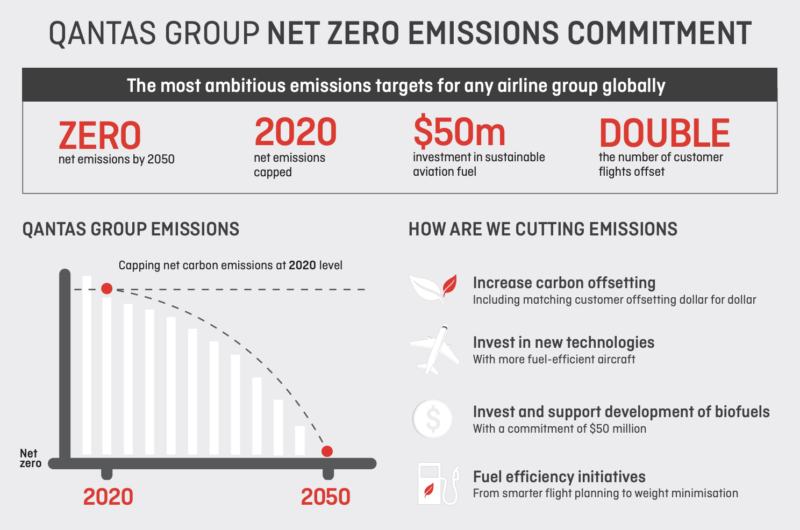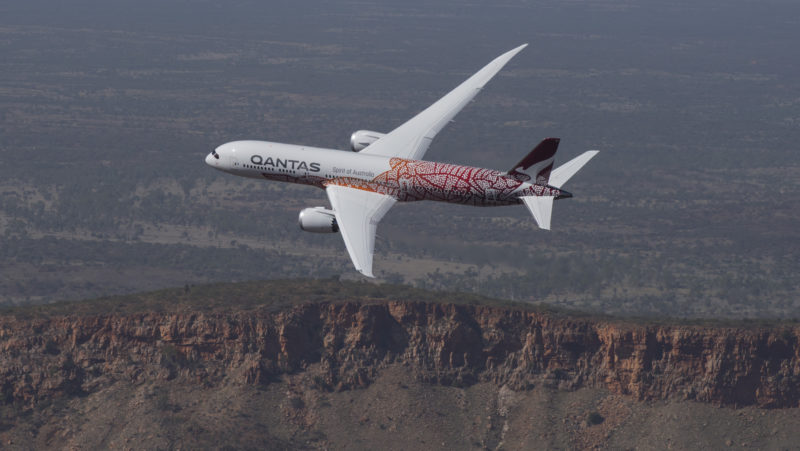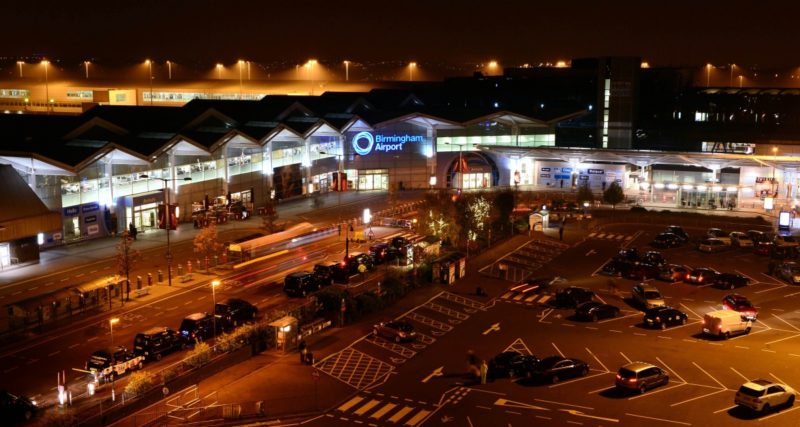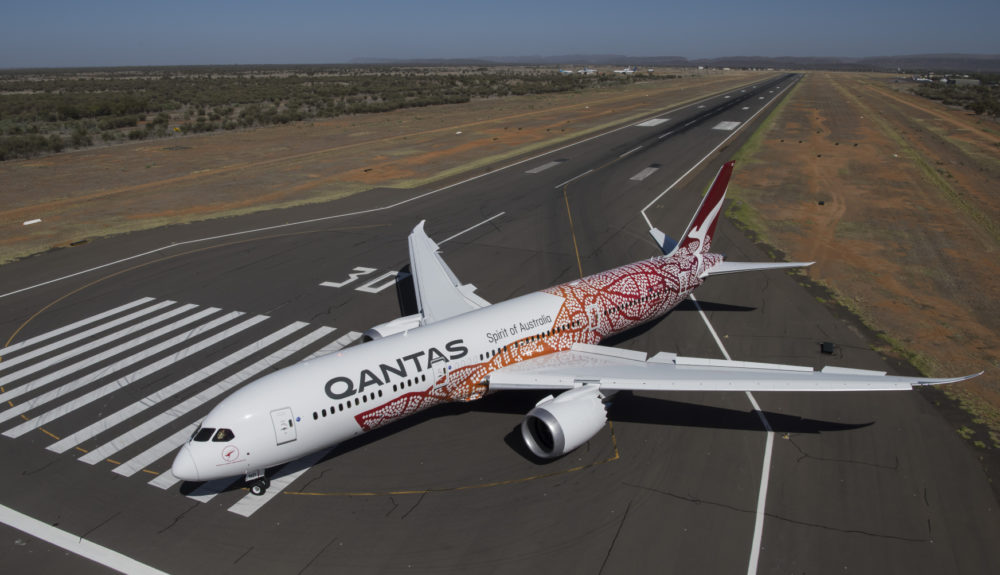The Qantas Group plans to reach net-zero carbon emissions by 2050; in a major expansion of the airline’s commitment to a more sustainable aviation industry, according to a media release.
Qantas will:
- Double the number of flights being offset
- Cap net emissions from 2020
- Invest $50 million over 10 years to help develop a sustainable aviation fuel industry

Qantas is the first airline group to commit to capping its net emissions in 2020, and the second to commit to net zero emissions by 2050, after IAG unveiled its “Flightpath net zero” plan in October.
The plan includes offsetting all net emissions from Project Sunrise, the carrier’s plan to operate non-stop flights from the east coast of Australia to London and New York.
According to the carrier, around 10 percent of customers booking flights on Qantas.com choose to offset their flights; which is currently the highest in the industry.

Qantas will also invest $50 million over the next 10 years to help develop a sustainable aviation fuel industry.
Sustainable aviation fuel can reduce carbon emissions by eighty percent, compared to traditional jet fuel, but are currently almost double the price.
Qantas is on track to replace its Boeing 747 fleet by the end of 2020 with the more fuel-efficient Boeing 787 Dreamliners, which burn 20 percent less fuel than aircraft of a similar size. Jetstar’s Airbus A321neo (LR) aircraft, which begin arriving next year, use 15 percent less fuel than the aircraft they are replacing.

Qantas Group CEO, Alan Joyce, said these commitments would make Qantas a leader in the aviation industry’s efforts to reduce carbon emissions.
We recognize that airlines have a responsibility to cut emissions and combat climate change. We’ve already made some good progress, especially by investing in newer aircraft that have a much smaller carbon footprint. We want to do more, and faster. We’re effectively doubling our carbon offsetting program from today and we’re capping our net emissions across Qantas and Jetstar from 2020 so that all new flying will be carbon neutral. These short-term actions will go towards a longer-term goal of being completely net carbon neutral by 2050. It’s ambitious, but achievable.
Qantas Group CEO Alan Joyce
Birmingham Airport Also Commits to Net-Zero Carbon Target
Earlier this week, Birmingham Airport announced its commitment to become a net-zero carbon airport by the year 2033.
The airport set a target ahead of the UK’s target of 2050, to reduce its carbon footprint quicker.
The airport has cut its carbon emissions by 33 percent since 2013 and emissions per passenger by over 50 percent, while growing passenger numbers by 40 percent.

Technology is changing at some pace and the movement to a net-zero economy itself is driving innovation across the energy and transportation industry, and we are going to take advantage of this. Over the next six to twelve months we will be working to revise our existing carbon management plan and develop a roadmap. This will allow us to set and prioritize genuine carbon reduction objectives rather than carbon off-setting schemes, as we see this as the least favourable option.
Nick Barton, Birmingham Airport’s CEO
The UK aerospace and aviation industries have already invested £22bn in green technology since 2005. This has helped to reduce the carbon emissions from UK aviation even as demand has grown 28 percent.




